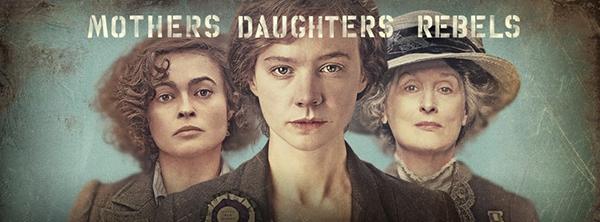‘Suffragette’ screening, panel discuss sexism at Cantor Film Center

Carey Mulligan, Helena Bonham Carter and Meryl Streep star in the new British drama, “Suffragette”.
November 23, 2015
Time and time again, people of all races, genders and minorities have fought to exercise control over their futures. “Suffragette,” a 2015 film directed by Sarah Gavron, tells the story of one such battle. Starring Carey Mulligan, Helena Bonham Carter and Meryl Streep, the movie details the fight of British women in the early 20th century to secure the right to vote. It was a long road that took decades of self sacrifice and was not won until 1928.
NYU’s Fusion Film Festival, which celebrates women in filmmaking, held a screening of this film on Thursday in the Cantor Film Center. The screening was followed by a panel moderated by Tisch assistant professor Janet Grillo. The panel included leading feminists in the industry including Shelby Knox, Adetoro Makind, Lydia Dean Pilcher and Rachel Watanabe-Batton.
While discussing the lack of female perspectives in Hollywood, they also commended the changing landscape, citing movies such Amy Schumer’s summer blockbuster “Trainwreck.”
“As a producer, the thing that I come up against all the time is certain narratives about women’s movies, and I have heard over and over again that the audience is too small or that women don’t go the movies,” Pilcher said.
To battle these invalid stereotypes, Pilcher’s organization, the Women’s Impact Network in the Producers Guild of America, put together a toolkit that uses big data to prove that it is not only right, but also profitable to market to women and present their real, authentic stories and dreams.
Shelby Knox presented another eye opening perspective on the women’s rights movement in the modern day.
“The biggest danger to my generation is that we have been fed the lie that the revolution has already been won and that we are already pretty much equal and that we can do anything,” Knox said. “That makes us fearful, that makes us think that we are crazy and we are alone when we hit a barrier. That scares me for our generation.”
The women’s rights movement has had many different dimensions, focusing not only on gender equality, but on equality across minorities and sexual orientation as well.
“Every other group but white men, everyone else is other,” Batton said. “Part of that framing of the world, that is problematic to begin with.”
Although the suffragettes won their specific fight almost a century ago, it was a step toward empowerment over their lives that is still relevant today. Women still fight for equality today, and as these professionals pointed out, these rights cannot take a back seat.
“Suffragette” is currently showing in the Sunshine Cinema and other nearby theaters.
A version of this article appeared in the Nov. 23 print edition. Email Anubhuti Kumar at [email protected].
Edit: A previous version of this article was headlined “‘Suffragette’ premiere explores sexism”


























































































































































